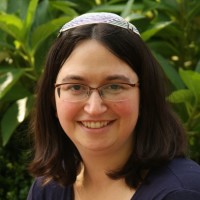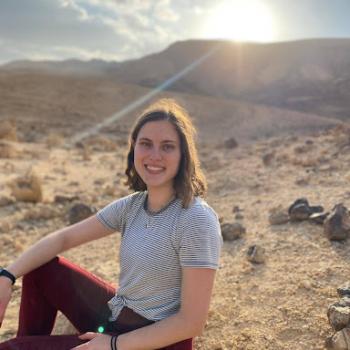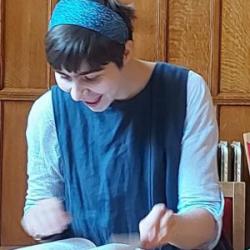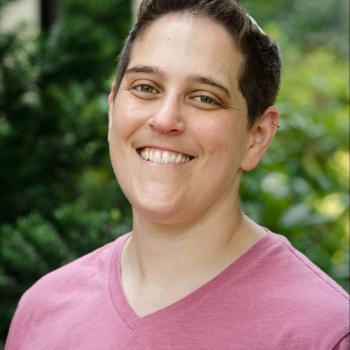 Parashat Vayechi (Genesis 47:28-50:26)
Parashat Vayechi (Genesis 47:28-50:26)
This Shabbat, we complete the first full week of the new secular decade. The beginning of the year 2020 has inspired many to look back over the last 10, 20, or more years, reflecting on the changes we have seen in our personal lives and in the world at large, to speculate on where the decades to come will take us, and how we will shape the future for ourselves, our children and the world. Reaching the end of Sefer Beresheet, the book of Genesis, we find Jacob in a similar mindset.
As Parshat Vayechi begins, Jacob has come to the completion of 17 years in Egypt. He has now lived as long as a guest under the protection of his son Joseph, Pharaoh’s second-in-command, as his time protecting Joseph as a child, his favorite son. Like the turn of the decade we face today, this moment for Jacob calls for reflection and construction of meaning.
Jacob senses that his life is coming to an end, and we see him looking back at the unexpected turns his life has taken, both good and bad, and looking forward to the legacy he will leave behind. Jacob is dying far from the land that he planned to pass down to his children, and with limited time and limited authority to direct the future proceedings of his family’s fulfillment of their destiny.
Abraham and Isaac, the first two patriarchs, though they lived and died in the promised land, and though each loved his other children deeply, each succeeded in passing the legacy, and their property, only to one child, carefully chosen with the help of God and the wisdom of their wives, as the next leader. Isaac and Jacob each united with their brother in the duty of burying their father, but the sibling relationship ended there.
Jacob, the final patriarch, must pass on his legacy without the gift of land, becoming the first leader to face this challenge in the diaspora. There is no land to divide or conquer, only promises to fulfill and relationships to build. Jacob, in the clarity of his old age, sees clearly that this legacy belongs to and requires the gifts of all of his children.
This parsha, then, is dedicated to Jacob drawing his family together, reminding them of their history, and setting a vision for their future. Jacob’s children’s relationships have been no less contentious than those of previous generations, but his vision at the end of his life differs from that of his father and grandfather and allows him somehow to bless all of his children.
This summer, in connection with a Hebrew College class on neurodiversity in education, I read the book Neurodiversity: Discovering the Extraordinary Gifts of Autism, ADHD, Dyslexia and other Brain Gifts by Thomas Armstrong. Armstrong asserts that within challenging diagnoses (not to downplay the serious challenges they bring), there are gifts to be found, and that each person may find a niche in which they can thrive. Furthermore, he asserts, our communities benefit from supporting each individual’s strengths and from individuals’ unique capacity to see and engage with the world when they find their niche and thrive within it.
Jacob demonstrates a similar attitude as he gathers his children, asks them to return his body back to their land, and blesses each one, individually and collectively. The blessings, at least the parts that are recorded, are not all equal, and many are not easy to read. The first three read more as harsh criticism than as blessings, but rather than reading out these children, with their character flaws and behavioral problems, they are acknowledged and included. Levi, for example, whose “blessing” is that his anger be cursed and that his tribe be spread throughout the nation, we know will find a niche in the spiritual leadership of the people, once he turns from violence and aggression.
Jacob sees each of his children both for who they are, and for the qualities that their tribe will bring to the Jewish people in the future. He sees their challenges, their strengths, their potential and the niches they will construct and inhabit.
How does Jacob learn to see his children in this way? His life experience, with cycles of expectation, loss and adjustment, has taught Jacob that our people will need the flexibility to draw on what each of his children has to offer, and the wisdom to value each individual. His blessings acknowledge the stumbling blocks of each child and seek to mitigate them, allowing their best qualities to shine and preserving them for the moment when the people will need them.
These last weeks, months, and years, Jews in America have become increasingly aware of the challenges we face as a community and as a people. Twenty years ago, who could have imagined the state of the world today (politically, socially, technologically, environmentally, etc.) or the resurgence of anti-semitism in America. Thousands of years of diaspora have fostered tremendous diversity among Jews, from the way we look, to the customs we practice, to the way we understand our relationship with each other and with God. Though we are not beyond points of contention within our ranks, it is becoming increasingly clear that we need the message Jacob imparts to his children in this parsha. Maintaining our legacy in the world —the wisdom, the joy, the comfort, the community that Judaism has to offer —requires flexibility and diversity. We must value and support all of our brethren, and the ways in which they both challenge and strengthen us, as integral to our families, our communities, and our future.
They say hindsight is twenty-twenty. The beginning of 2020 looks somewhat grim. 2040 is not yet in focus. It is in our hands to shape it so that we look back with wonder at what we will have accomplished together in the next 20 years. As we say at the end of each book of the Torah, chazak chazak v’nitchazek, be strong, be strong, and may we all grow stronger.
Rabbi Shira Shazeer is the School Rabbi at Metrowest Jewish Day School in Framingham, MA where she coordinates the Judaic Studies program and teaches music. She studied in the Scholars’ Circle at Drisha Institute for Jewish Education, and received her rabbinic ordination from the Rabbinical School of Hebrew College in 2010, and is currently pursuing an additional masters degree in Jewish studies with a specialization in special education as a Legacy Heritage Fellow at Hebrew College.
















